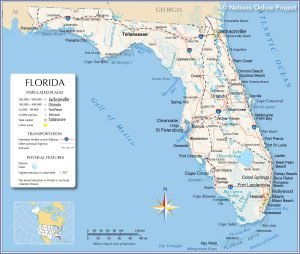The Right To Opportunity for Useful Employment

Have you ever worked as a burger flipper at McDonald’s? Statistics show that half of all Americans have worked in the restaurant industry at some point in their lives. Which means that half of all Americans know what a lousy job it can be. You’re putting up with the unhappy customers, the hotshot shift manager and the unpredictable schedule, all for minimum wage. If you’re lucky, you’ll move up into a better position. I hear being a manager pays decently if you can get into the right restaurant, or you can put your experience to work and open your own restaurant. (I really wouldn’t recommend opening a McDonald’s franchise. Open your own burger joint and you’ll have better control over the quality of your beef patties along with not having to pay franchise fees and follow every little rule invented by someone at a central corporate office.)
Working as a burger flipper is no way to support a family. In an ideal world, it would almost exclusively be the job of teenagers who want to earn gas money so they can go out on the weekend. However, going on strike to demand $15 an hour isn’t going to change much. You’ll still be stuck in a meaningless job in which you might someday be replaced by a robot. You really need to move up into a job that’s actually useful. If you have the opportunity, it’s really up to you to maximize it because it might knock rather loudly, but you have to open that door. If you need the opportunity for useful employment, in a lot of cases, it’ll be a matter of knowing where that opportunity exists and then finding a way to get there.
This isn’t a pep talk. It’s not my job to cheer you on when you probably feel discouraged for a reason and you probably hear a lot of that anyway. It sure gets you a whole lot of nothing, doesn’t it? I will say that you’re wasting your time if you’re just sitting around waiting for opportunity to knock. I can honestly tell you that you might have been laid off, but that doesn’t mean you can’t tackle an online class, try your hand at freelancing or seriously consider starting your own business. It’s all a matter of knowing what’s out there because corporations might not be hiring much right now, but that doesn’t mean that they don’t have work that needs doing. If the opportunity is out there, it’s up to you to find out about it and take advantage of it.
But maybe the opportunity just isn’t there. Maybe you live in one of those countries that are bad about censoring the Internet or have severed the backbones of the Internet altogether. That’s bad news for freelancers who are used to working for clients from around the world and high-powered execs who work for big international companies. I wonder if Syria realizes how much damage it did to itself when it severed its ties to the World Wide Web. Foreign sanctions are good for putting financial pressure on a nation. Assuming that Syria has ecommerce entrepreneurs, blocking their ability to sell goods on the international market is even better for doing economic damage.
What do you do if your country’s economy is such a wreck that you’re doing good if you own a few acres of land and a flock of chickens? You learn how to make do without the latest Android tablet and wide-screen TV, of course. I’m not making fun of the people who live in poverty, either. I think people just forget that not everybody has the lifestyle of middle-class America because the opportunities for an education and a useful job just aren’t there. Fair trade is becoming more popular as an everyday application of the trickle-down theory of economics because businessmen in Africa often cannot afford to pay their workers in cash at all, let alone “competitive” salaries or a minimum wage. Their workers might get a few sacks of coffee or a sack of that might contain gold if they’re lucky. The problems of third world countries tend to make the problems of fast food workers look petty by comparison. Americans can at least find a job in a factory if they’ve just gotten sick of fast food (and, yes, the McDonald’s junk can make you sick). A slave worker in a poor country doesn’t have that option unless he wants to run away and take his chances.
“The right to opportunity for useful employment,” as Robert Zubrin calls it, simply means you shouldn’t have to beg for your chance to make something of yourself. A true capitalist system would be very unforgiving of lazy bums who refuse to put the hours in, but it would also offer opportunities for advancement for people willing to take advantage of modern novels like easily accessible online classes (can be a paid version or free videos – remember, “the right to an education free of bureaucratic brainwashing” applies too) that teach you about finance, programming, language skills, or whatever you might have been needing to make it to the next level. Once you’ve made it to a truly excellent position that has you leaping out of bed every morning so you can get to work, you’ll probably wonder why you ever bothered with McDonalds.
No More Excuses, Folks.









